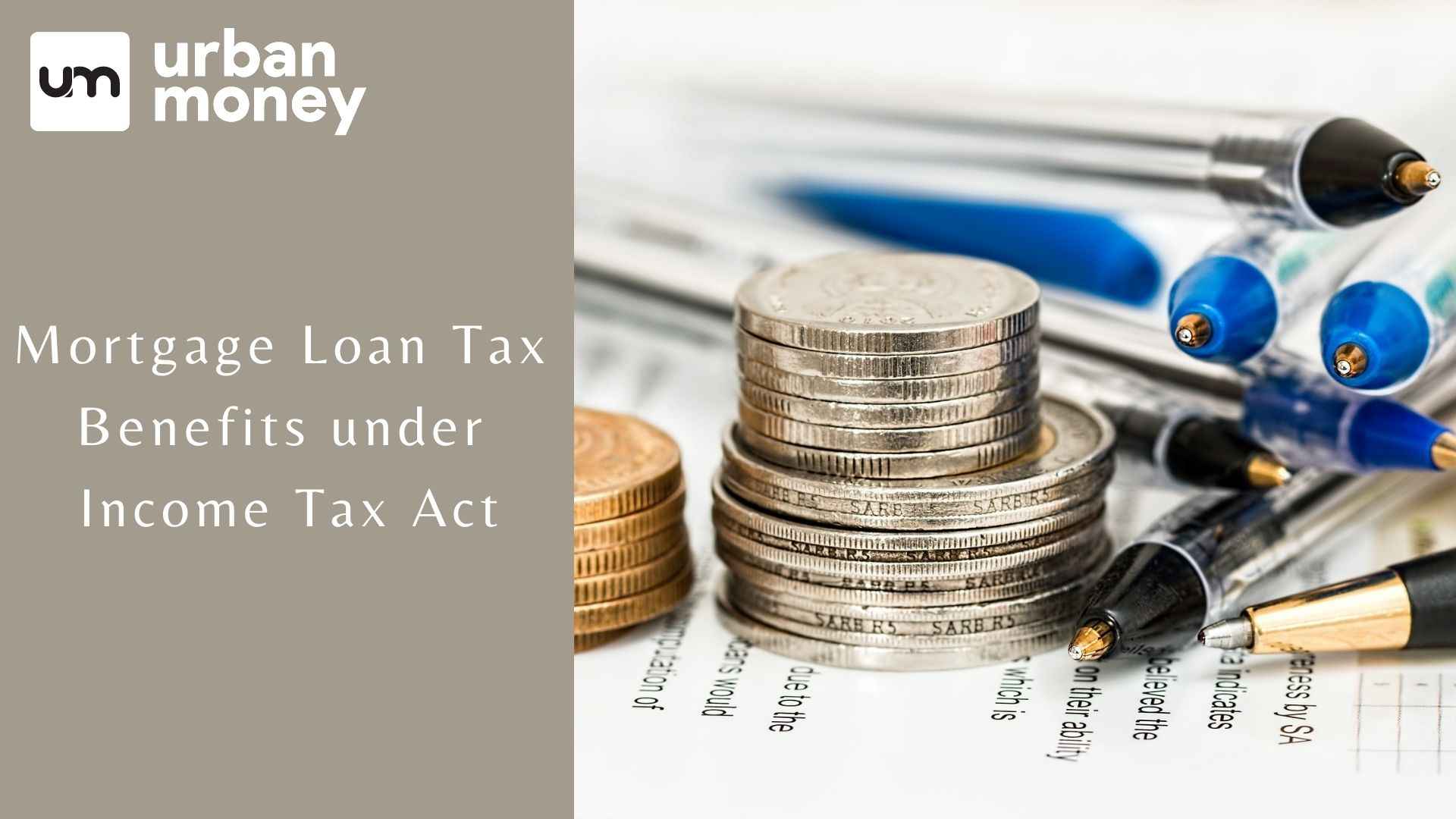Top 10 Best Private Banks in India List 2025
January 09, 2025
January 13, 2022


A Loan Against Property is a secured advance amount that users get against their mortgaged commercial or residential property. This amount of funds is not restricted to being used for a certain purpose but can be used for any requirements including daily expenses.
Such loans can be extended to tenor, which is why this loan is known to be an affordable option for many.
This amount can be used for many purposes that include your daily expenditure or even specific expenditure such as:
With a mortgage loan comes the tax that needs to be paid. Hence, the most frequent question asked is will an individual be able to avail any mortgage loan tax benefits? Mortgage loan tax benefits can be availed from
Read on to know what the tax benefits are that one can avail of if opted for Loan Against Property and also understand the different sections and property tax rebate on the same.
It is to be noted that the loan amount an individual borrower can avail of from a financial institution varies from bank to bank. The industry standard is at least 60% of the property’s market value. So the amount can range from between Rs 10 Lakhs to Rs 7.5 Crores.
The borrower can avail of lucrative interest rates from a LAP loan as the nature of the loan is secured. The banks are also inclined to provide flexible repayment tenure to the borrowers against the loan.
The banks have designed multiple EMI options for borrowers so that they can repay the loan amount without any hassle. The borrower can choose from the repayment plan that complements their budget and facilitate the process conveniently.
The bank easily processes LAP loans without any hassle or delay. It generally takes 3-4 days to conclude the application process. The applicant must produce minimal documents, and the loans are disbursed efficiently.
Any individual between the age of 21 years to 65 years can apply for a loan against property. This broad bracket encompasses a large population to avail of this lucrative financial product to satisfy their requirements.
The process to mortgage the property to access funds has been availed of significantly. It is always beneficial to mortgage off property instead of selling it to obtain funds for any emergency or investment. The Loan Against Property tax benefits depends on how the borrower will utilise the funds acquired. It is to be noted that only the interest on the loan is eligible for tax exemptions, not the principal repayments. A borrower can avail of mortgage loan tax benefits under two Sections that is Section 37(1), which is for commercial purposes. And Section 24(B) to fund other properties.
This section provides Loan Against Property Tax benefits to the salaried individual. The borrower can avail of a tax benefit of up to Rs 2 Lakhs if they allocate the funds to obtain a new residential property. The interest payments on such loans are eligible for tax exemptions.
As per the Income tax act, the borrowers can avail of a loan under this section on the expenses. This, in turn, enables businesses to claim tax benefits on the expenses incurred during business operations. A standard LAP loan is not exempted from taxes. But as the funds obtained from the loan are allocated towards business expenses, the loan is eligible for tax benefits. Businesses can also obtain deductions if they apply for funds to obtain commercial assets.
The borrower could not claim a Loan against Property tax benefits if the funds were raised for reasons such as school, marriage, travel and medical expenses. However, an individual can claim tax benefits against a house loan. As per Section 80C of the Internal Revenue Code, the tax benefits on loans against property are only exclusive to Section 24(B) and Section 37(1).
Financial institutions allow borrowers to raise additional funds on their existing home loans if they meet the prerequisites. The applicant can avail of lower interest rates on such loans if they produce enough documents to authenticate that the funds are allocated for acquiring, repairing, and renovating a residential property.
The tax benefits availed of from such loans are limited to the amount of Rs 30,000. And the deductions are only eligible if the property is self-occupied. However, there is no cap on deductions if the property was for rent at the time of repairs and renovations.
The Loan Against Property tax benefits can be claimed concerning how the allocated funds are utilised. A borrower can only claim a deduction if the funds are employed to purchase the property under section 24(B) and Section 80C. But it is to be noted that the loan interest is not eligible for deduction if the funds are used for repairs, alterations and renovations on existing properties.
A user can easily claim for exemption of tax from their loan in case the loan against property amount is used for the purpose of business. Under such situations, the claim is availed for interest paid along with fees & charges associated with the same property. And a user can claim the same under Income Tax Act 37(1).
No, the loan against property is non-tax-deductible regardless of the purpose of the property. Which could either be personal or commercial use.
Yes, a user can avail of tax benefits on a loan against property. However, you cannot avail such benefits under Section 80C.
A customer does not get any property tax rebate under Section 80C. Whereas, a customer can avail tax benefits on the interest section of the payment made of the loan even when the user hasn’t made payment for the actual amount of the home loan.
A loan against property is a secured advance amount that a user gets against his/her mortgaged commercial or residential property. It is not restricted to being used for a certain purpose but can be used for any purpose that even include your daily expenses.









Top 10 Best Private Banks in India List 2025
January 09, 2025

Top10 List of Petrol Pump Companies in India
January 09, 2025

Dairy Farm Loan in 2025 : Online Procedure
January 09, 2025

Top 10 Best Bank for Home Loan In India…
January 09, 2025

Top10 Best Student Credit Cards in India 2025
January 09, 2025
© 2025 www.urbanmoney.com. All rights reserved.

Need Loan Assistance?